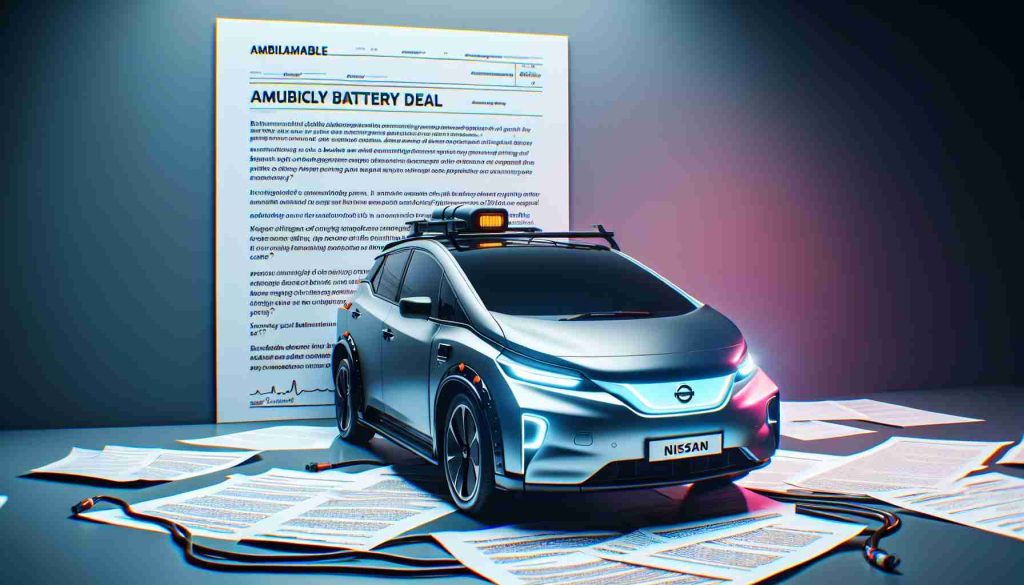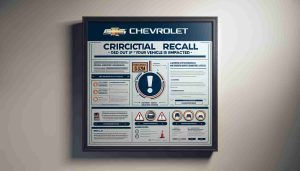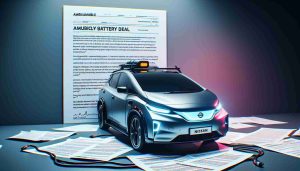Nissan’s EV Ambitions Stalled! Battery Deal Raises More Questions

Nissan’s electric vehicle (EV) future in the United States is increasingly uncertain as the company’s production plans face significant delays. The automaker recently confirmed a substantial agreement with SK On to purchase 20 GWh of batteries, which is projected to power around 300,000 electric vehicles. However, production timelines have been revised, causing concern among fans and stakeholders alike.
In a bold move nearly three years ago, Nissan pledged to invest $500 million into its Canton, Mississippi facility to ready it for launching new electric models. Initially slated to start EV production this year, Nissan has now deferred the timeline until 2028, amid worries about profitability and market demand. This significant delay indicates a major pivot in strategy for the company.
Reports also surfaced that Nissan has scrapped plans for a smaller electric SUV, intended to fill the gap between the LEAF and the Ariya models. The decision came as the automaker shifts focus toward more lucrative projects that promise greater consumer demand.
Despite these setbacks, Nissan is working on forming a domestic supply chain for electric vehicles, which will ultimately support its plans for future models. Yet, as competitors ramp up their production, Nissan will need to address its dwindling market share, which has dropped 2.1% in the past five years, now sitting at just 5.8%. With substantial competition on the horizon, the automaker’s next moves will be crucial for its survival in the EV market.
The Broader Implications of Nissan’s Electric Vehicle Strategic Shift
Nissan’s recent challenges in navigating the electric vehicle (EV) landscape signal not only potential upheaval for the company but also ripple effects across society, culture, and the global economy. As the automotive industry moves toward electrification, the stakes are high. Delays in Nissan’s EV production may hinder consumer confidence and deter investment in infrastructure critical for a broader transition to sustainable transportation.
The decision to postpone production until 2028 reflects deeper systemic concerns within the company regarding market demand and profitability. As Nissan scales back on its product lineup, particularly by discarding plans for new models, it risks losing relevance in a rapidly evolving market dominated by competitors like Tesla and emerging players from both domestic and international arenas. This shift not only impacts Nissan’s immediate economic viability but also challenges the broader cultural shift toward sustainability and innovation in the automotive sector.
From an environmental perspective, reliance on established supply chains, primarily in Asia, can hinder progress on reducing carbon footprints. Effective domestic supply chains are vital for minimizing transportation emissions associated with battery production. As Nissan struggles to reclaim its position, the implications for global carbon reduction efforts could be significant, as advanced markets depend on competitive EV solutions.
Looking forward, navigating these challenges will likely shape Nissan’s legacy. In a landscape where market agility is paramount, the automaker’s ability to adapt to consumer demands and enhance its EV offerings will determine its long-term sustainability. As the industry at large continues its rapid transformation, Nissan must prioritize innovation and reposition itself to remain relevant amidst a fleet of advancing competitors.
The Uncertain Road Ahead: Nissan’s EV Strategy and Production Challenges
Overview of Nissan’s Electric Vehicle Future
Nissan’s ambitions in the electric vehicle (EV) sector are experiencing significant challenges as delays in production timelines create uncertainty surrounding its future in the United States. The company’s recent strategic agreements and shifts indicate a pressing need to adapt in a rapidly evolving market.
Delayed Production Timelines
Nissan recently announced a deal with SK On for a substantial purchase of 20 GWh of batteries, enough to power approximately 300,000 electric vehicles. However, the automaker has revised its production timelines, postponing the rollout of its electric models to 2028. This is a notable shift from earlier expectations and signals a more cautious approach in light of profitability concerns and fluctuating market demand.
Investment in Manufacturing
Nearly three years ago, Nissan committed $500 million to enhance its facility in Canton, Mississippi, preparing for the launch of new electric models. This investment reflected Nissan’s intent to be a key player in the EV sector. However, the significant delay in production raises questions about the efficacy of this investment amid shifting priorities.
Changes in Product Strategy
As part of its revised strategy, Nissan has reportedly abandoned the development of a smaller electric SUV that was meant to bridge the gap between the LEAF and Ariya models. This shift indicates a focus on more lucrative segments that demonstrate higher consumer demand, emphasizing the company’s need to recalibrate its product offerings.
Future Supply Chain Developments
Despite these challenges, Nissan is actively working to establish a domestic supply chain for its electric vehicles. This initiative aims to bolster its operational capabilities for future models while addressing delays in production. Building a robust supply chain could enhance Nissan’s competitiveness as it seeks to reclaim market share.
Market Share and Competitive Landscape
Current reports indicate that Nissan’s market share in the U.S. EV segment has decreased by 2.1% over the past five years, now standing at 5.8%. As competitors accelerate their production and release of electric vehicles, Nissan must urgently re-evaluate its strategies to avoid further declines.
Trends and Insights into the EV Market
The broader EV market continues to evolve, marked by increasing consumer interest, advancements in battery technology, and the introduction of new models by rival automakers. Nissan must capitalize on these trends by innovating and aligning its future products with consumer preferences, focusing on sustainability and cutting-edge technology.
Challenges and Opportunities Ahead
Nissan faces several obstacles in the pursuit of a successful EV strategy, including:
# Pros:
– Strategic battery partnerships can enhance product offerings.
– Investment in domestic manufacturing strengthens supply chain resilience.
# Cons:
– Delays in production timelines can lead to lost market opportunities.
– Abandoning smaller models limits options for budget-conscious consumers.
Conclusion: The Path Forward
Nissan’s future in the electric vehicle market remains uncertain as it navigates these challenges and opportunities. The company’s ability to innovate and adapt to the competitive landscape will be crucial for maintaining its position in this rapidly evolving sector. With a renewed focus on supply chain management and strategic investments, Nissan could potentially reclaim its status as a leading player in the EV industry.
For more detailed insights into the automotive industry’s evolution, visit nissan-global.com.



